Take Charge of Your Own PL This Summer!

What’s PL? Professional Learning. You know…the kind you do for yourself.
Top down, Industrial Age professional development is being heavily infiltrated by Digital Age teacher-powered professional learning. From Twitter chats to edcamps, “play dates” and action research, teachers are increasingly making the choice to differentiate their learning based on need, urgency, and passion.
Herding educators together for one-size-fits-all professional development has been lamented by teachers for decades, as the information presented so often misses the mark of teachers’ real work. We now have tools to tailor what we learn to what we know we need in order to maximize our professional growth.
Learning Forward’s decision to shift from Standards for Professional Development to Standards for Professional Learning, according to the organization, “signals the importance of educators taking an active role in their continuous development and places emphasis on their learning.”
Educators are determining professional learning content, place and time, especially as micro-credentials gain traction (above). New Milford High School in New Jersey is cutting edge in providing micro-credentials for teachers who have successfully demonstrated a skill and who can then display accomplishments, using Credly, a free web service for issuing, earning, and sharing badges, or as Mozilla OpenBadge.
No longer completely constrained by sit-and-git or factory-style professional development, teachers are leading their own skill and knowledge development and on their own terms. Do It Yourself (DIY) professional learning, often fueled by connective technologies, comes in various forms, and the movement is growing. What are some models of next generation professional learning? Read on.
Connected Professional Learning
As more and more teachers direct their own professional growth, connected learning advances in importance. For example:
► Connected Educators Month (CEM), which networks educators worldwide, is officially held in October. The event premiered in 2012 and now, in its fourth year, activities are already gearing up to transform professional learning and bring about educational change. According to CEM’s website, Connected Educators, the year-long schedule of events and opportunities for earning are equally suited for educators who have never been part of an online professional community or network and those who are hungry for more. [2015 available in April 2016]
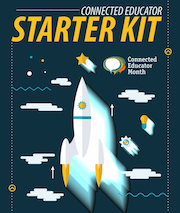
► Google for Education, in connection with CEM 2015, began offering free online conferences in May. Education on Air was the first. Visit the archived resources and learn from Lord David Puttnam, Michael Fullan, screenwriter Richard Curtis, former teacher and Google education leader Tia Lendo, and others. [limited online presence April 2016]
► Learning Forward’s 2014 presentation Teachers Connect to Transform Our Practice and Our Profession lists over 20 online communities that educators can join – from the Center for Teaching Quality Collaboratory to iEARN – tapping into resources across disciplines and interests.
Connecting Professionally with Apps
Apps expand virtual professional learning, says “app-ologist” Robbie Melton, associate vice chancellor of mobilization & emerging technology at the Tennessee Board of Regents, in an article at District Administration magazine. Melton offers many suggestions about how to select apps for connected learning, including these resources:
- APPitic – A directory of apps for education by Apple Distinguished Educators (ADEs) to help you transform teaching and learning. These apps have been tested in a variety of different grade levels, instructional strategies and classroom settings. [defunct April 2016]
- App-A-Pedia – An encyclopedia of educational apps, including professional learning.
- Mobile Apps MERLOT – A collection of apps to connect you with an online community.
4 More Ways to Own Your Professional Learning
► Edcamps: The Edcamp approach is founded on the principles of connected and participatory learning. Edcamps are free unconferences, where content is crowdsourced (participants are both teachers and learners) and attendees dive in to discussions and hands-on sessions as they will. Tips:
- Don’t overlook the resource Edcamp in a Box that can help you begin your own unconference.
- Check out this International Society for Technology in Education (ISTE) blog post, Edcamps are Redefining Professional Learning, and read the quick book Edcamp Model: Powering Up Professional Learning (Corwin, 2014) for more history and resources.
► PLAYDATE – People Learning and Asking Y: Digital Age Teacher Exploration: The PLAYDATE model bubbled-up from the brainstorming of educators who wanted something different from traditional conferences. Typically they have a bit more techy, maker flavor.
- These free events have been held worldwide and the PLAYDATE starter kits are complimentary.
- Don’t overlook one of their most powerful features: shared resources via Google Docs and Sheets. Anyone can access and anyone can add additional links, videos, books, and ideas. The resources range from technology tips and step sheets to curriculum design and pedagogical approaches.
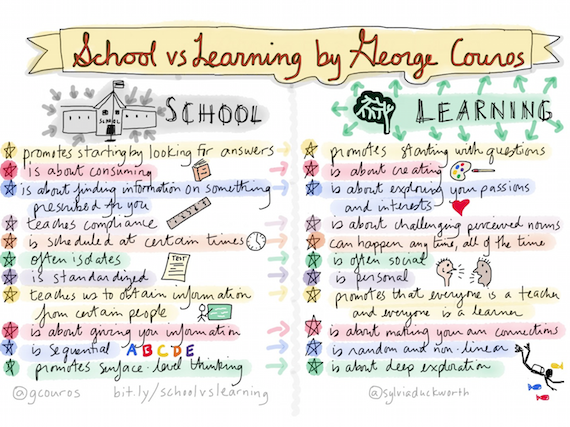
Principal and author George Couros posed the idea in his post Inquiry Based Professional Learning, where he outlines several benefits to the approach, also known as action research. Digital Promise, an independent, bipartisan nonprofit authorized by Congress, has a focus on putting the inquiry-based PL model to work. Read ELA teacher and coach Serena Hicks’ insightful take on action research in Teachers as Researchers: The Power of Mindset at the Digital Promise website.
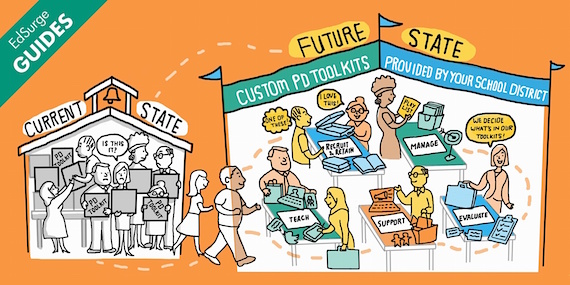
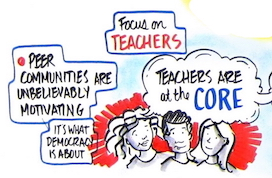
How are you leading your own learning? What other next generation of professional learning models do you see emerging on the educational landscape? Please share your thoughts with everyone!
Emily Vickery (@ehvickery) describes herself as a “Learning Architect, Author, Teacher, and Teacherpreneur” who enjoys “musing on teaching and learning with an eye towards the future.” Located in the Florida Panhandle, she teaches English Language Arts and shares trends and innovations in learning through presentations, consulting, and blog posts. Find out more.

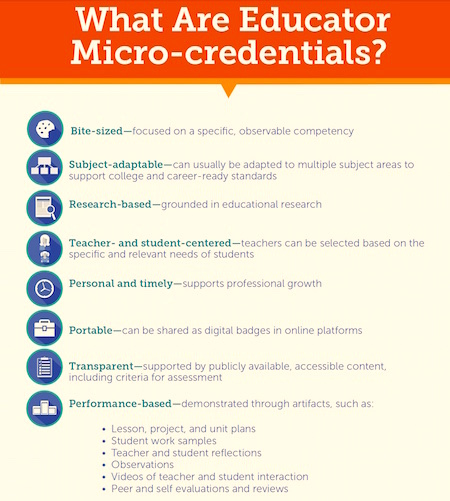
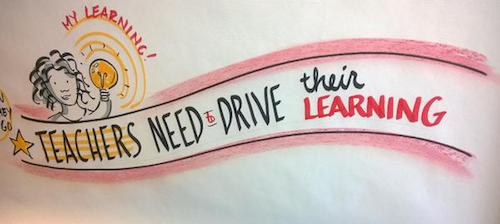


































Hi! I am with the National Writing Project. Through our Educator Innovator initiative, we offer #CLMOOC, a collaborative, knowledge-building and sharing experience open to anyone interested in making, playing, and learning together about the educational framework known as Connected Learning. It is free, self-paced, and open for signups: http://bit.ly/1ApDFRP